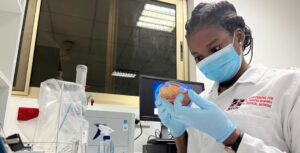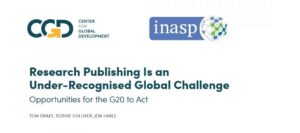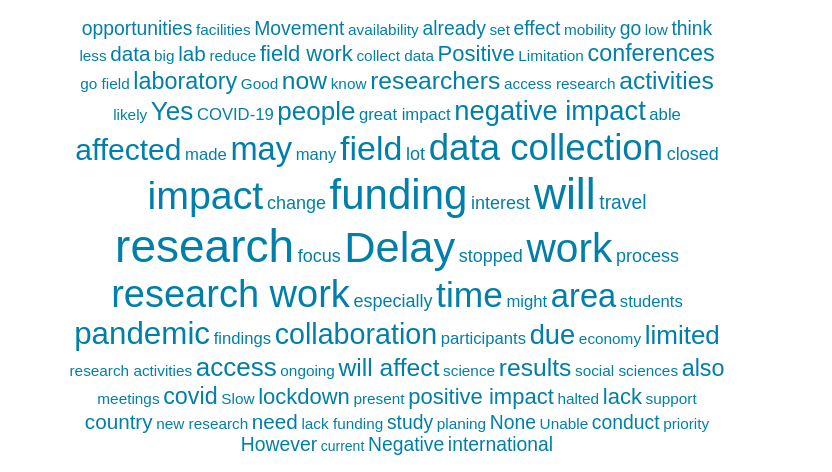
What is the impact of the COVID-19 pandemic on Southern researchers?
Last month, as part of a wider researcher study, we asked researchers about the impact of the COVID-19 pandemic on their research. We share some key findings from a new paper analysing the responses we received.
The COVID-19 pandemic has changed almost every aspect of our lives over the past few months. Worldwide, it has changed our work, our social lives, impacted how we get our food, and brought new words into our vocabularies.
It has also put scientific research into the spotlight in a way that few could have imagined even six months ago.
INASP strongly believes in the important role of research and knowledge from everywhere in the world in solving the most pressing challenges. This focus on research, especially when coupled with a realisation of the expertise in many parts of the world that often get overlooked by researchers and policymakers in the world’s wealthier countries, is a positive outcome of the pandemic.
But what of the people doing the research?
This year INASP, via our AuthorAID project, initiated a “Voices of Early-Career Researchers” survey in April. As the survey launch date approached, the scale of COVID-19 was becoming clearer. We therefore made a late change to our survey plans by adding the important question:
“What impact, if any, do you think that the Coronavirus (COVID-19) pandemic will have on your research work?”
The survey
Our survey (which ran for approx. 2 weeks until the 17th April) attracted responses from 752 researchers from 94 countries (just over of 60% of which were in Sub-Saharan Africa) and across the whole spectrum of academic disciplines. Analysis of the full survey will be shared at a later date but, given the timeliness of the COVID-19 question, we have shared the findings to this particular question in a new paper.
Our COVID-19 question was answered by 531 respondents (70%), who gave answers ranging from single words to extended discussion.
It is important to recognise that each response in this survey represents an individual voice in a specific cultural, temporal and geographic context. However, some common themes emerged, as illustrated in this word cloud (the larger the word, the more frequently it occurred in the responses).
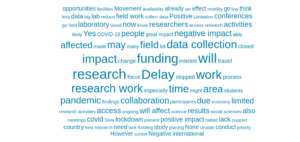
Key terms that jumped out immediately were ‘funding’, ‘delay’, and ‘collaboration’. A deep reading of the data confirmed an additional key theme of ‘restriction of movement/travel’. In addition, the data suggested mental health impacts, which we also explored.
Funding: The majority of comments about funding concerned the potential lack of funding for future research. Some were already feeling the direct effects of reduced funding at the time of responding. There were some concerns that funding for COVID-19 research would divert research funding from other areas, with some individuals suggesting that this redirection of funding might force them to redirect their research – although not everyone thought that this diversion of funding would be a permanent state of affairs. Others were concerned that, beyond the direct funding of research, money would be limited for things like scholarships and travel. Not all responses around funding were completely negative; some were more nuanced, indicating that there could be both positive and negative financial implications. The few positive responses about financial issues tended to emphasise the possibility of increased funding for research born out of a recognition for the need to better understand and find solutions to the pandemic and its impacts, or more broadly out of increased recognition of the importance of research.
Delays: One of the words to occur most frequently in the data was ‘delay’ which cropped up in 62 individual responses. There was a general sense that COVID-19 was already delaying research, or would be a source of delay in the future. Delays were anticipated across many areas including data collection, conference participation, carrying out fieldwork and defence of theses. Delay in the publication process and disseminating work were also areas of specific concern. Although delays were seen as inevitable, and often seen as a negative outcome of the pandemic, some respondents could see positive outcomes of delays in terms of increased time to re-focus their research. Statistically, women were 50% more likely to mention delays than men. This aligns with findings from other recent studies that suggest that the impact of COVID-19 on the careers of women researchers may be particularly detrimental (see, for example, here and here for articles about journal submissions from women falling dramatically during lockdown).
Collaboration: The need for increased inter-disciplinary collaboration was widely expressed by respondents. Some believed that existing collaborations would be negatively impacted due to increased focus on COVID-19 related research. Some expressed a frustration because tackling the pandemic seems to demand increased collaboration, but their own opportunities to collaborate were becoming more limited. Not all the comments around collaboration were negative and some saw increased opportunities. Others saw an evolving research landscape, influenced by the pandemic, which would result in more international collaboration.
Limited travel: Travel is an essential part of work for many researchers, whether that be as part of carrying out research work, disseminating the results at meetings or conferences, or travel to conduct collaborative work. Limited travel to international conferences was seen as having an impact on collaborative research and limiting the exposure and dissemination of research. Generally, there was a pragmatic acceptance that limitations in travel were probably inevitable and that research would have to find a way of adapting.
We also looked to see if respondents had indicated that the pandemic would have an effect on their mental health. In truth, there were few specific mentions of mental health issues, but it was hard not to read many of the other comments through a lens of frustration and depression. Other mentions of mental health specifically related to research opportunities that might be opened up in that area.
Positives as well as negatives
Although the major themes to emerge from this data all have negative implications, it is important to note that throughout the survey there was also some positivity – about 9% of respondents recorded at least some positives. Most comments focussed on increased opportunities, funding and collaborative work. It was interesting, particularly in light with the comments above about delays, to note that women were proportionally 30% more likely to have recorded a positive response than men. There were marked differences between disciplines with those in Medicine and Healthcare being the most likely to say something positive about the impact of COVID-19 – this was often evidenced as seeing new research opportunities.
This data offers a glimpse into how a global pandemic of unprecedented proportions was impacting young researchers around the world at a particular point in time. There are serious concerns evidenced about money and travel, about collaboration and delays. However, there is also hope for increased opportunities and global collaborations. Research by Southern researchers will be essential to tackle this and future pandemics and other crises. While the concerns expressed by these early-career researchers at an early stage in the current crisis inevitably focus predominantly on short-term challenges and opportunities, they will also have a longer-term impact. Further research is urgently needed on the likely long-term impact of the pandemic on Southern research capacity so that it is there when needed in the future.
Thank you to Gary Dooley, an independent research consultant who worked with INASP to analyse the findings from this study. Read his full paper.
See also our AuthorAID blog for a growing collection of personal researcher stories in light of COVID-19 restrictions.

 Previous Post
Previous Post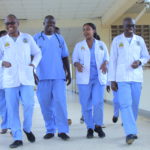 Next Post
Next Post